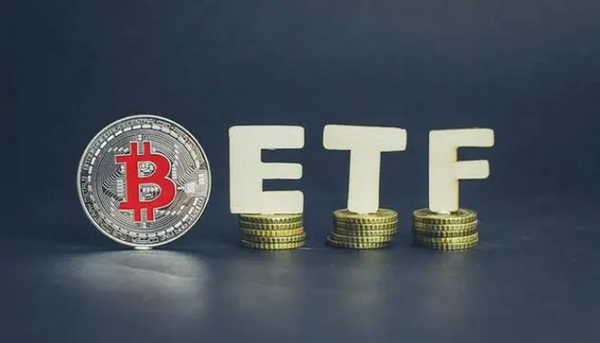-
 Bitcoin
Bitcoin $85,697.3844
1.57% -
 Ethereum
Ethereum $1,638.9615
0.39% -
 Tether USDt
Tether USDt $0.9999
0.00% -
 XRP
XRP $2.1668
2.02% -
 BNB
BNB $589.6303
0.00% -
 Solana
Solana $132.3928
-0.10% -
 USDC
USDC $1.0000
-0.01% -
 TRON
TRON $0.2521
-1.70% -
 Dogecoin
Dogecoin $0.1597
-2.28% -
 Cardano
Cardano $0.6439
0.85% -
 UNUS SED LEO
UNUS SED LEO $9.4287
0.41% -
 Chainlink
Chainlink $12.6833
-0.80% -
 Avalanche
Avalanche $20.0262
0.05% -
 Stellar
Stellar $0.2425
-0.03% -
 Toncoin
Toncoin $2.9684
4.14% -
 Sui
Sui $2.2145
-3.52% -
 Hedera
Hedera $0.1672
0.05% -
 Shiba Inu
Shiba Inu $0.0...01194
-1.99% -
 Bitcoin Cash
Bitcoin Cash $333.3345
-1.23% -
 Litecoin
Litecoin $77.8594
0.59% -
 Polkadot
Polkadot $3.7096
1.64% -
 Hyperliquid
Hyperliquid $16.3941
4.91% -
 Dai
Dai $1.0000
0.01% -
 Bitget Token
Bitget Token $4.3126
1.07% -
 Pi
Pi $0.7411
-1.42% -
 Ethena USDe
Ethena USDe $0.9991
0.02% -
 Monero
Monero $213.9141
2.70% -
 Uniswap
Uniswap $5.4003
-0.80% -
 OKB
OKB $52.2630
-1.39% -
 Pepe
Pepe $0.0...07415
0.89%
how do bitcoin etfs work
Bitcoin exchange-traded funds (ETFs) provide investors access to Bitcoin's price action without direct ownership, offering diversification, convenience, and regulatory oversight.
Oct 26, 2024 at 11:46 pm

How Do Bitcoin ETFs Work?
What is an ETF?
An exchange-traded fund (ETF) is a type of security that tracks the performance of a basket of assets, such as stocks, bonds, or commodities. ETFs are traded on stock exchanges, just like stocks, and offer investors a way to diversify their portfolios and gain exposure to a particular asset class without having to buy individual assets.
How Do Bitcoin ETFs Work?
Bitcoin ETFs are ETFs that track the price of Bitcoin. They are designed to provide investors with a way to gain exposure to Bitcoin without having to actually own the cryptocurrency. Bitcoin ETFs are typically backed by physical Bitcoin, which is held in custody by a third-party custodian. This means that investors who buy Bitcoin ETFs are not actually buying Bitcoin, but rather a claim on the underlying asset.
Benefits of Bitcoin ETFs
There are several benefits to investing in Bitcoin ETFs, including:
- Diversification: Bitcoin ETFs can help investors diversify their portfolios by adding a new asset class.
- Convenience: Bitcoin ETFs are traded on stock exchanges, making them easy to buy and sell.
- Regulation: Bitcoin ETFs are regulated by the Securities and Exchange Commission (SEC), which provides investors with some protection against fraud and manipulation.
Risks of Bitcoin ETFs
There are also some risks associated with investing in Bitcoin ETFs, including:
- Volatility: Bitcoin is a volatile asset, and its price can fluctuate significantly. This volatility can also impact the value of Bitcoin ETFs.
- Expense ratios: Bitcoin ETFs typically have higher expense ratios than other types of ETFs. This means that investors could incur significant fees over time.
- Tracking error: Bitcoin ETFs may not always track the price of Bitcoin perfectly. This tracking error could result in investors losing money if the ETF's price does not move in line with the price of Bitcoin.
Conclusion
Bitcoin ETFs offer investors a convenient and regulated way to gain exposure to Bitcoin. However, investors should be aware of the risks involved before investing in Bitcoin ETFs, including volatility, expense ratios, and tracking error.
Disclaimer:info@kdj.com
The information provided is not trading advice. kdj.com does not assume any responsibility for any investments made based on the information provided in this article. Cryptocurrencies are highly volatile and it is highly recommended that you invest with caution after thorough research!
If you believe that the content used on this website infringes your copyright, please contact us immediately (info@kdj.com) and we will delete it promptly.
- Ethereum (ETH) Price Prediction: ETH Up for Rally As Buying Signal Flashes
- 2025-04-15 18:00:12
- XRP Price Prediction: Technical Analysis and Market Momentum
- 2025-04-15 18:00:12
- Toncoin (TON) Is in the Spotlight as Several On-Chain and Technical Indicators Suggest a Possible Rally
- 2025-04-15 17:55:15
- MAGACOINFINANCE – Viral Momentum With Real ROI
- 2025-04-15 17:55:15
- When Peter Brandt speaks, the markets listen. This trading veteran, active since the 1970s, dropped a bombshell
- 2025-04-15 17:55:13
- KiloEx, a decentralized exchange (DEX) for trading perpetual futures, was hit by a sophisticated attack
- 2025-04-15 17:55:13
Related knowledge

What is the difference in returns between long-term holding of a Bitcoin ETF and holding Bitcoin directly?
Apr 09,2025 at 04:15am
When considering the difference in returns between long-term holding of a Bitcoin ETF and holding Bitcoin directly, it's essential to understand the nuances and factors that affect each investment option. Both approaches have their unique advantages and potential drawbacks, which can significantly impact the overall returns over time. Understanding Bitc...

How is the "roll cost" of a futures Bitcoin ETF generated?
Apr 08,2025 at 01:22pm
The 'roll cost' of a futures Bitcoin ETF is a critical concept for investors to understand, as it directly impacts the performance of the ETF. In this article, we will delve into the mechanics of how the roll cost is generated, exploring the underlying processes and factors that contribute to this cost. Understanding Futures ContractsFutures contracts a...

How can the premium or discount of a Bitcoin ETF be narrowed through an arbitrage mechanism?
Apr 09,2025 at 12:07am
Arbitrage mechanisms play a crucial role in narrowing the premium or discount of a Bitcoin Exchange Traded Fund (ETF). Understanding how these mechanisms work can provide valuable insights into the dynamics of Bitcoin ETFs and their relationship with the underlying asset. This article will delve into the specifics of how arbitrage can be used to align t...

What factors affect the bid-ask spread of a Bitcoin ETF?
Apr 08,2025 at 08:50pm
The bid-ask spread of a Bitcoin Exchange Traded Fund (ETF) is a critical metric that investors and traders closely monitor. It represents the difference between the highest price a buyer is willing to pay (bid) and the lowest price a seller is willing to accept (ask). Several factors influence this spread, and understanding them can help investors make ...

How is the seed capital of a Bitcoin ETF used?
Apr 10,2025 at 02:15pm
The seed capital of a Bitcoin ETF plays a crucial role in the establishment and operation of the fund. This initial investment is used to create the fund's underlying assets, manage operational costs, and ensure the ETF can start trading on an exchange. Understanding how this seed capital is utilized provides insight into the mechanics of Bitcoin ETFs a...

What is the difference between "physically backed" and "synthetic" Bitcoin ETFs in terms of holding assets?
Apr 10,2025 at 04:56pm
Bitcoin Exchange Traded Funds (ETFs) have become a popular way for investors to gain exposure to the cryptocurrency market without directly owning the underlying asset. There are two primary types of Bitcoin ETFs: physically backed and synthetic. Understanding the differences between these two types, particularly in terms of how they hold assets, is cru...

What is the difference in returns between long-term holding of a Bitcoin ETF and holding Bitcoin directly?
Apr 09,2025 at 04:15am
When considering the difference in returns between long-term holding of a Bitcoin ETF and holding Bitcoin directly, it's essential to understand the nuances and factors that affect each investment option. Both approaches have their unique advantages and potential drawbacks, which can significantly impact the overall returns over time. Understanding Bitc...

How is the "roll cost" of a futures Bitcoin ETF generated?
Apr 08,2025 at 01:22pm
The 'roll cost' of a futures Bitcoin ETF is a critical concept for investors to understand, as it directly impacts the performance of the ETF. In this article, we will delve into the mechanics of how the roll cost is generated, exploring the underlying processes and factors that contribute to this cost. Understanding Futures ContractsFutures contracts a...

How can the premium or discount of a Bitcoin ETF be narrowed through an arbitrage mechanism?
Apr 09,2025 at 12:07am
Arbitrage mechanisms play a crucial role in narrowing the premium or discount of a Bitcoin Exchange Traded Fund (ETF). Understanding how these mechanisms work can provide valuable insights into the dynamics of Bitcoin ETFs and their relationship with the underlying asset. This article will delve into the specifics of how arbitrage can be used to align t...

What factors affect the bid-ask spread of a Bitcoin ETF?
Apr 08,2025 at 08:50pm
The bid-ask spread of a Bitcoin Exchange Traded Fund (ETF) is a critical metric that investors and traders closely monitor. It represents the difference between the highest price a buyer is willing to pay (bid) and the lowest price a seller is willing to accept (ask). Several factors influence this spread, and understanding them can help investors make ...

How is the seed capital of a Bitcoin ETF used?
Apr 10,2025 at 02:15pm
The seed capital of a Bitcoin ETF plays a crucial role in the establishment and operation of the fund. This initial investment is used to create the fund's underlying assets, manage operational costs, and ensure the ETF can start trading on an exchange. Understanding how this seed capital is utilized provides insight into the mechanics of Bitcoin ETFs a...

What is the difference between "physically backed" and "synthetic" Bitcoin ETFs in terms of holding assets?
Apr 10,2025 at 04:56pm
Bitcoin Exchange Traded Funds (ETFs) have become a popular way for investors to gain exposure to the cryptocurrency market without directly owning the underlying asset. There are two primary types of Bitcoin ETFs: physically backed and synthetic. Understanding the differences between these two types, particularly in terms of how they hold assets, is cru...
See all articles























































































